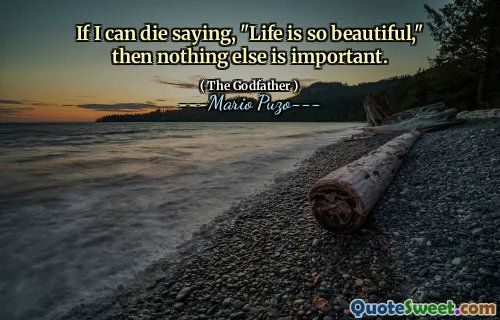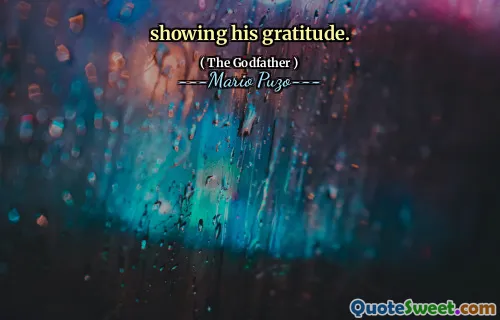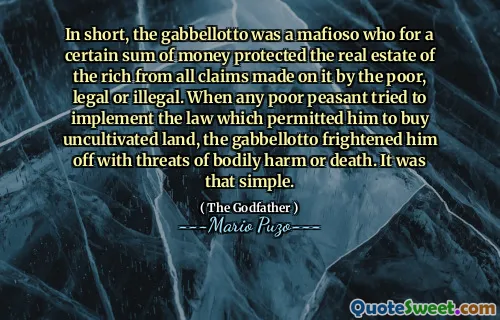
showing his gratitude.
Gratitude is a powerful and universally understood gesture that transcends language, culture, and circumstance. In the concise phrase "showing his gratitude," there is an implicit acknowledgment of appreciation and recognition of kindness or help rendered. Within the context of The Godfather, by Mario Puzo, this expression is rich with layered meaning. In a narrative fraught with power dynamics, loyalty, and the often complex interplay of favors and obligations, showing gratitude is not just a courtesy but a critical part of maintaining relationships and respect. It often signifies acknowledgment of a bond or debt that demands reciprocation, sometimes shaping the course of characters' futures.
More broadly, gratitude is fundamental to human connection. It can foster empathy, strengthen relationships, and create a positive feedback loop that encourages further generosity and cooperation. Showing gratitude may be as simple as a smile or a thank-you, or as profound as a life-changing gesture, yet its impact is significant. In a world where self-interest can dominate, a genuine display of gratitude can bridge divides and reinforce trust.
Reflecting on this phrase encourages us to consider how often and in what ways we express thankfulness. It challenges us to not take kindness for granted and reminds us that acknowledging others’ contributions enriches our lives. Whether in small daily interactions or significant life events, showing gratitude uplifts both the giver and the receiver, reinforcing the social and emotional fabric that binds us. In essence, this brief quote is a potent reminder of the grace and humility embedded in human connection.









